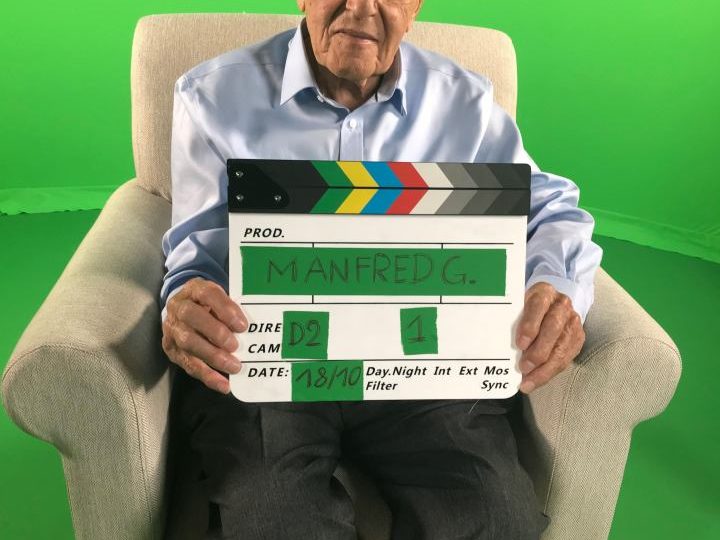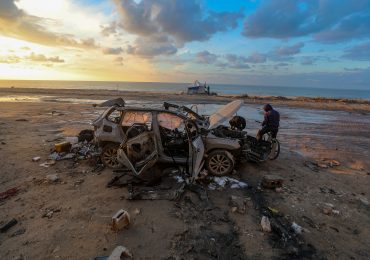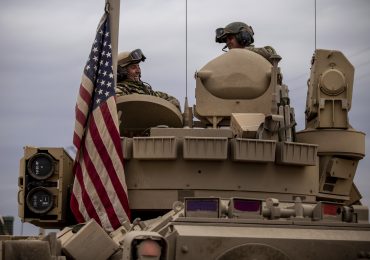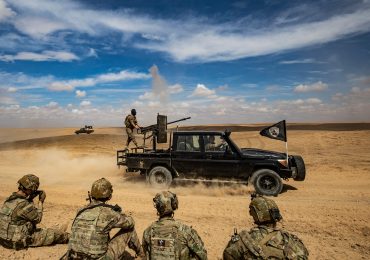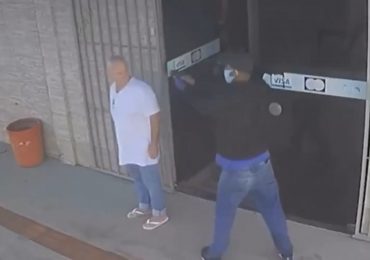HOLOCAUST survivor Manfred Goldberg feared the story of his horrific childhood in Nazi death camps would be lost when he is gone.
But thanks to virtual reality and AI tech, the 94-year-old will be able to “live on” after his death to tell future generations about his wartime hell.
SuppliedManfred Goldberg with a clapperboard during the making of the new interactive Testimony 360 tech[/caption]
SuppliedManfred watches himself in action in the new tech wizardry, created by the Holocaust Educational Trust[/caption]
Arthur Edwards / The SunDevoted Manfred with Shary, his wife of 63 years[/caption]
The virtual Manfred will be capable of answering any of 15,000 questions about his experience of Hitler’s Holocaust, in which six million Jews were murdered in World War Two.
He will even be able to take viewers inside the Nazi concentration camp where his little brother Herman was killed while he and his mother were being worked almost to death as slave labourers.
He will even be equipped to take viewers inside the Nazi concentration camp where his little brother Herman was killed, while he and his mother were being worked almost to death as slave labourers.
Manfred, from Hendon, North West London, is the first Holocaust survivor to take part in Testimony 360 — a remarkable two-year project that will allow children of the future to ask him about the horrors he witnessed, long after he is no longer alive.
King Charles, who will visit Auschwitz today — Holocaust Memorial Day — recently met father-of-four Manfred at Buckingham Palace and experienced the new technology, created by the Holocaust Educational Trust.
In an exclusive interview with The Sun, Manfred said: “It’s the nearest thing to magic. It’s practically like being granted immortality.
“I don’t know how many more years I’ll be granted, but the intention is to help educate youngsters in schools 20, 30 or 40 years from now.
“Very soon after I began speaking in schools, it became clear to me that listening to the testimony directly from a survivor is the most powerful way you can reach young people.”
Violent death
Last year, Manfred sat in a classroom of schoolchildren to watch his virtual self speaking to them.
He said: “Initially, it felt weird — grotesque, almost. The youngsters were asking questions and the virtual me was responding.
“The children were quite overwhelmed. They couldn’t believe that such a thing was possible.”
Manfred and his brother Herman were born in Kessel, central Germany, where his Polish immigrant parents, textile merchant Benno and mum Rosa, were part of the town’s 5,000-strong Jewish community.
As war approached, Jews could only leave if they had a visa to another country, otherwise they would be sent to any one of the thousands of concentration camps that Adolf Hitler had ordered to be built.
Poland refused to take the family, so Manfred’s mum Rosa travelled to Berlin and begged staff at the British Embassy to give her husband a visa.
Poland refused to take the family, so Manfred’s mum Rosa travelled to Berlin and begged staff at the British Embassy to give her husband a visa.
Manfred said: “The gentleman who she met was so moved by her heartbreak that he wrote out a visa entitling my father to enter the UK.
It’s the nearest thing to magic. It’s practically like being granted immortality. I don’t know how many more years I’ll be granted, but the intention is to help educate youngsters in schools 20, 30 or 40 years from now
Manfred Goldberg
“She had no idea who this gentleman was. She kept saying, ‘I met an angel today’.
“We have since found out that he truly was an angel. My mother had the good fortune to meet Frank Foley, a super-spy for MI6 who saved more than 10,000 Jewish lives.”
The Nazis allowed Manfred’s father Benno to leave for London, carrying one small suitcase and just five German marks — equivalent to around £36 today — in his pocket.
But it was September 1939, and before Foley could get UK visas for the rest of the family, the war broke out, leaving Rosa and her boys, aged nine and five, trapped in Germany.
Then, in December 1941, they were given just ten minutes to pack before being transported on a crammed train for three days to an overcrowded ghetto in the Latvian capital Riga, where Jews were living 25 to a house.
Here, aged 11, known only by the number 54678, and on a starvation diet, Manfred witnessed his first violent death.
Arthur Edwards / The SunManfred aged three[/caption]
AlamyPrisoners after the liberation of the Nazi concentration camp[/caption]
As he and his brother waited for their mum to return from her slave labour shift in a factory making uniforms, the Nazis caught a woman smuggling food into the ghetto.
Manfred said: “She was put against the wall and shot — that was their way of terrorising us into obedience.”
Later, Manfred and Herman were held at gunpoint after finding a sack of potatoes in an unoccupied house in the ghetto. But the guard who could have killed the brothers let them go.
Over the course of the war, the family endured the horrors of six concentration camps.
At the second, in Latvia, Rosa and Manfred, then 13, were put to work fixing railway lines that had been bombed by the RAF.
While they were at work, Herman — by then aged nine — stayed in the camp with three other boys.
Manfred recalled: “We actually began to think that these beasts, brutal as they were, still had a little bit of sympathy or heart and allowed these youngsters to remain alive. But we were mistaken.
“A few weeks after we arrived, one day we returned from work and the youngsters had gone, all four of them.
A few weeks after we arrived, one day we returned from work and the youngsters had gone, all four of them
Manfred Goldberg
“Two SS men had come into the camp during the day. They had orders to collect the youngsters and took them away — to be murdered.
“Life in camp was so brutal. The next morning I and my mother, who was truly heartbroken at the loss of her little boy, had to line up, shout out our number and go to work as if nothing untoward had happened.”
One day a year later, the camp inmates were ordered to strip naked — the young and fit would survive, the elderly and infirm would be sentenced to death.
Teenager Manfred was put in the group to live, while his mother, who was grey haired at only 40, was put with those to be sent to their deaths.
But Rosa, with a small group of similarly naked women, raced over to mingle with those chosen to survive.
The guards then dragged the women back — but did not spot Rosa.
Later, dressed in striped prison garb, she and her son were sent to Stutthof, a death camp near the Polish port of Gdansk, where prisoners were fed a daily cup of gruel made from potato peelings.
Manfred said: “Once you entered through that gate, effectively it was a death sentence because rarely did anyone leave Stutthof alive. People reached a stage when they were walking skeletons.
Once you entered through that gate effectively it was a death sentence because rarely did anyone leave Stutthof alive. People reached a stage when they were walking skeletons
Manfred Goldberg
“Some could no longer walk, but shuffled on their knees. A very small number couldn’t take any more punishment.
“Though it was forbidden, they began shuffling towards the high-voltage fence to try to electrocute themselves to end their suffering.
“Trainloads of Jews were taken straight to the gas chamber and hours later they were dead, then sent to the crematorium for burning.”
After working at two other camps on railway repairs, with Rosa filling in holes and 14-year-old Manfred helping to carry tracks, they were sent back to Stutthof.
On April 26, 1945, with the end of the war just days away, the Nazis force-marched hundreds of emaciated prisoners out of the camp.
Manfred said: “Anyone who was too weak to march and began trailing behind was shot, and the bodies left as they fell.”
Searching for Rosa in the crowd, he bumped into teenager Zigi Shipper, a friend he had met in one of the camps before they became separated.
Searching for Rosa in the crowd, he bumped into teenager Zigi Shipper, a friend he had met in one of the camps before they became separated.
Anyone who was too weak to march and began trailing behind was shot, and the bodies left as they fell
Manfred Goldberg
Manfred said: “Neither of us knew that the other was still alive. He was in bad shape and could barely walk.
“I said, ‘Zigi, if you sit down, you’re dead’. I couldn’t let that happen, so I grabbed him, weak as I was, and began dragging him.
“Mercifully, someone took pity and supported him on the other side, so between us we managed to drag him.
“Shortly after, my mother and I bumped into each other. We were overjoyed.
“We managed to keep Zigi walking until we reached a small port, where they packed us into four large open barges, towed by tugs.”
For six days, the prisoners were crammed in the bottom of the boats with no food or water.
Manfred said: “Each day, our barge stopped. An SS officer appeared on a gangway going around the top.”
He would choose a screaming prisoner and order a group of men to drag them up to the top deck.
Trainloads of Jews were taken straight to the gas chamber and hours later they were dead, then sent to the crematorium for burning
Manfred Goldberg
Manfred said: “Within a very short time, we heard a scream followed by a splash. That person was thrown on his orders into the sea to drown.
“He was not satisfied until at least 20 or 25 people lost their lives in that indescribably cruel manner.
“It happened on a daily basis until day six, when the tugs went off and didn’t return. We were drifting unguarded.”
Incredibly, a group of PoWs in the barges — who were better fed than the death marchers — ripped up loose floorboards and used them as makeshift paddles to steer the barges to the shore, where they ran aground.
Manfred recalled: “There was jubilation. People began clambering up on to the top deck, jumping into shallow water and walking to land.
“But some people were so emaciated their hearts were still beating but their minds were not functioning.
People reached a stage when they were walking skeletons
Manfred Goldberg
“They were not thinking human beings any longer. They just sat there, not moving, waiting for the end.
“Then the guards and tugs returned. They went wild, seeing what we’d done. Some got on to the barge and we could hear incessant shooting.
“All those poor people who had remained behind were shot. A second lot came ashore and rounded us up.
“We really thought our last minute had come.”
LIFE-LONG FRIENDSHIP
AFTER the war, Manfred and his concentration camp friend Zigmund Shipper were reunited in London and continued their life-long friendship until Zigi’s death in 2023.
It took 72 years before they returned to the camps, with a 2017 visit to Stutthof with the Prince and Princess of Wales.
Manfred, who worked in electronics after his arrival in Britain, said: “We had the best part of an hour walking, just the four of us.
“Before they left Stutthof, they were asked to leave a message in the VIP book. This part of what they wrote impresses me.
“ ‘All of us have an overwhelming responsibility to make sure we learn the lessons and that the horrors of what happened is never forgotten and never repeated’.”
Instead, the Nazi guards marched them on again, killing any stragglers.
Manfred said: “Suddenly the guards stopped shooting people, turned and ran for their lives.”
They had spotted a column of Allied tanks, and close behind, trucks laden with food.
The British soldiers they had seen began handing out water, loaves, tinned meat, cheese and fruit.
They were not thinking human beings any longer. They just sat there, not moving, waiting for the end
Manfred Goldberg
The war was over, and a year later Rosa and Manfred were reunited in London with Benno, who worked as a painter repairing Blitz-ravaged homes.
Manfred said of his entry to Britain: “I thought I had arrived in paradise.”
LESSON FOR ALL
By Olivia Marks-Woldman, CEO of The Holocaust Memorial Day Trust
HOLOCAUST Memorial Day might feel like an annual ritual primarily for the Jewish community.
It might even seem irrelevant to those who are not Jewish.
But this view misses something deeply important.
The Holocaust was not a tragedy for one community – it was an attack on the essence of humanity, one that revealed the unimaginable horrors of unchecked hate and intolerance.
While Jews were the primary targets of Nazi persecution, horrors extended to other groups including Roma, black people, gay people and disabled people.
The lessons of the Holocaust belong to all of us.
The responsibility to remember – and to act – is one we all share.
It is a day to pause and ask some hard questions.
How do we treat those who are different from us? How do we respond to injustice when it is not directed at us?
Prejudice grows in silence, in the moments when we turn away instead of speaking up.
Every slur ignored, every stereotype left unchallenged, and every act of exclusion tolerated contributes to an environment where hate can take root and poison society.
The sobering lesson of Holocaust Memorial Day is that we all share a responsibility to uproot intolerance before it can grow.
The memory of the Holocaust should inspire and energise us to build a future where no one lives in fear of persecution because of their identity.
That future depends on the choices we make today.
The way we approach HMD is one of those critical choices, one with serious implications.
Will we dismiss it as solely a Jewish concern?
Or will we acknowledge that the lessons of the Holocaust are universal, timeless and relevant to us all?
By coming together to commemorate Holocaust Memorial Day, we can all work together to build a better future.

